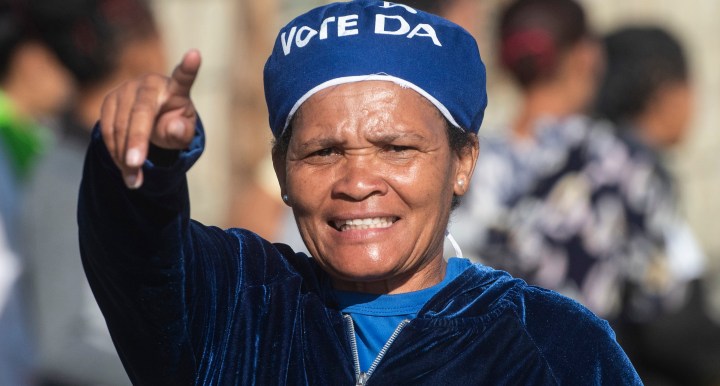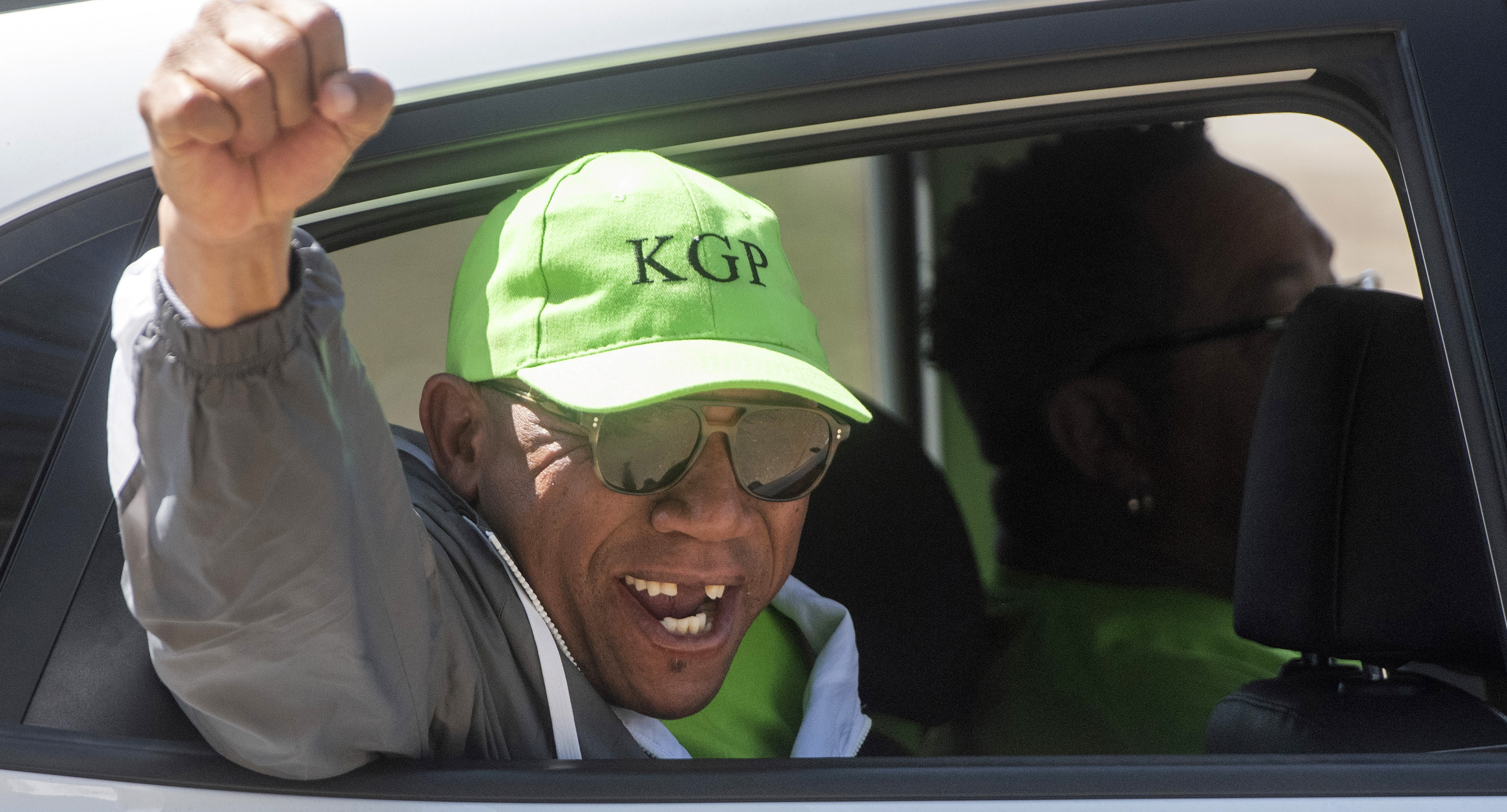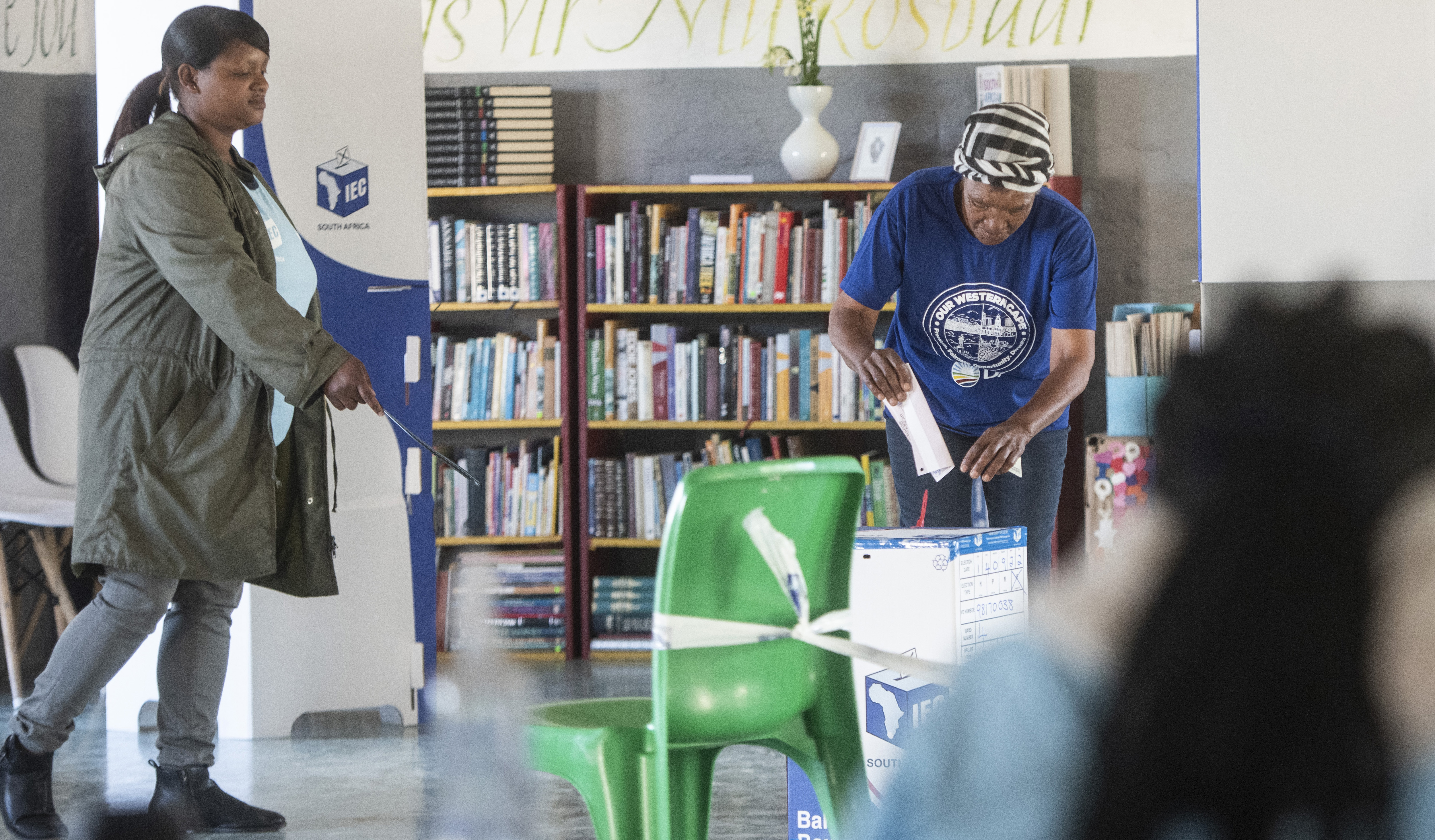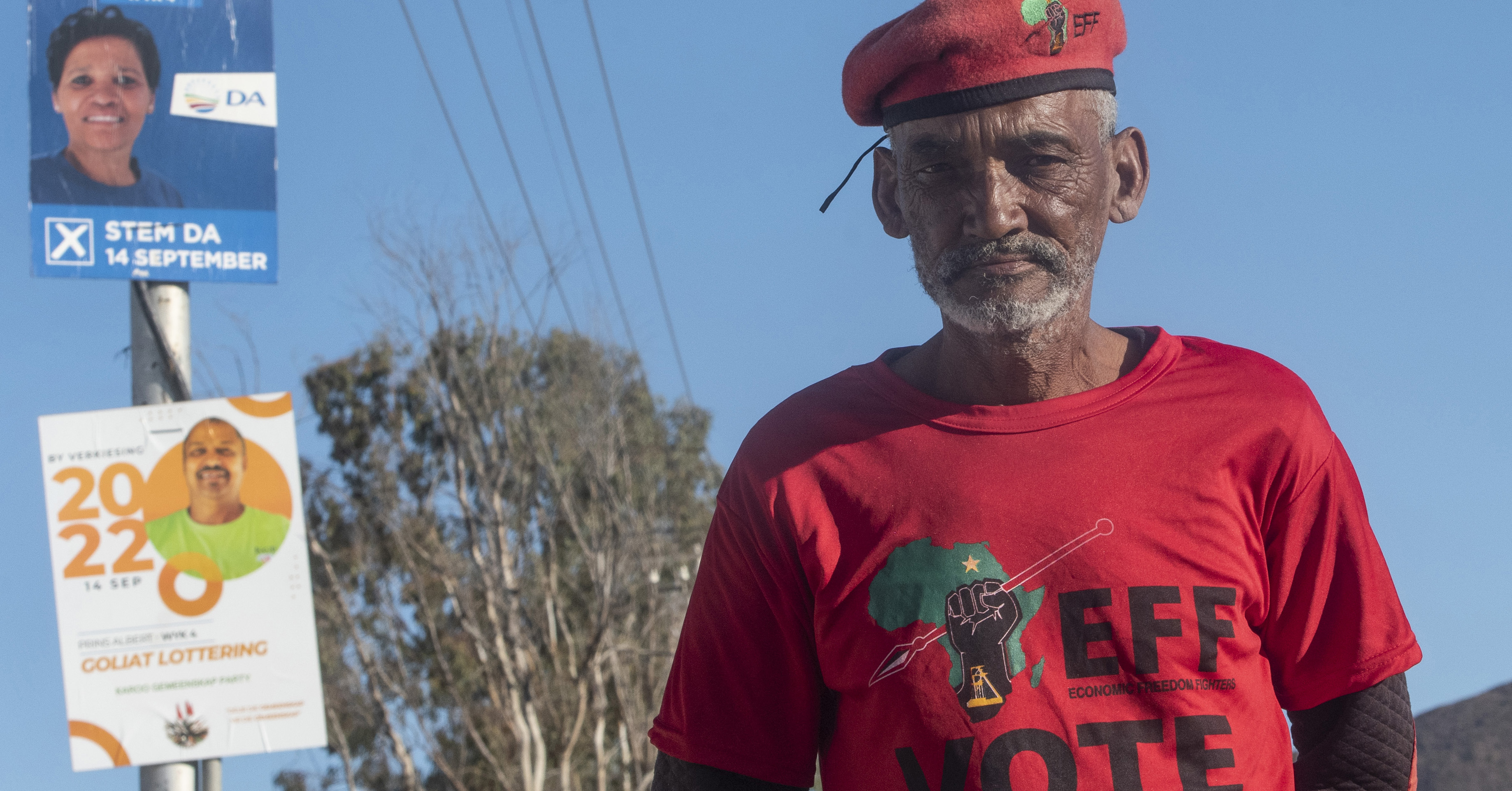SEPTEMBER BY-ELECTIONS
DA triumphs in Prince Albert nail-biter while IFP bucks trend to shock ANC in KZN

There were two by-elections in South Africa this week, bringing a night of high drama as the DA won an outright majority in Prince Albert in the Central Karoo by picking up a seat from a local party, while the IFP shocked the ANC in a safe seat just outside Richards Bay.
Western Cape
Ward 4 (North End) Prince Albert, Central Karoo. DA 51% (30%) Karoo Gemeenskap Party 48% (32%) ARA 1% (0) EFF <1% (2%)
The setting: Prince Albert is a small town in the heart of the Karoo and sits in the shadow of the Swartberg mountains. It is the gateway to the famous Swartberg Mountain Pass. It is a tourist destination known for its olive groves, fruit farming and Karoo lamb. Prince Albert is about 45km from the N1 national highway near Leeu Gamka. Ward 4 is just north of the town centre.
Prince Albert forms part of the Central Karoo District. The mayor of the Central Karoo is South Africa’s most well-known district municipality mayor: Gayton McKenzie, leader of the Patriotic Alliance. This district has the lowest number of voters in South Africa and has just over 1.5% of the total voter base of the province. The example is not exactly like for like, but there were more registered voters in some Cape Town wards than actual voters in the entire Central Karoo District during the 2021 local government elections. There are vast open spaces in this part of the Western Cape. The main town is Beaufort West. It also includes Laingsburg.
The 2021 local government elections: If nail-biting elections are your thing, relocate to Prince Albert tomorrow. Three of the four wards here require a swing of 1.5% or less for the current holder of the seat to lose it. One of the wards requires a swing of less than 0.5%. One of those three super-marginal seats is Ward 4.

A supporter of Karoo Gemeenskap Party president Goliat Lottering. (Photo: Brenton Geach)
The Karoo Gemeenskap Party (KGP) won Ward 4 by 25 votes in 2021. There are two voting districts in the ward. There was no turnout differential when one considers the more densely populated Rondomskrik Pop Centre and the Sydwell Williams Centre. The KGP won at Rondomskrik by 53 votes in 2021 by obtaining 31% of the vote. The DA was second with 25%. The ANC and the Patriotic Alliance (PA) got more than 10%.
Read more in Daily Maverick: “Music blasts in Prince Albert by-election, but voters have jobs on their minds”
The DA carried Sydwell Williams by 28 votes. It received 36% of the vote, with the KGP winning a third of the vote in this district. The PA won more than 10%.
The EFF finished ninth in the ward in 2021. It did not just finish behind the two major parties, but also behind the PA, the ANC and other local, regional and provincial parties.
The KGP (two seats) formed an alliance with the ANC (one) and the PA (one) after the election. The DA filled the opposition benches with its three seats. Margy Jaftha of the KGP became mayor, replacing her party leader and prominent Prince Albert personality, Goliat Lottering.

Locals vote at the Rondomskrik POP Centre in the Ward 4 by-election in Prince Albert on Wednesday. (Photo: Brenton Geach)
Lottering did not make it back to council. What happened to the KGP is similar to what happened to the ANC in many parts of the country. The ANC had the challenging situation of being overrepresented by ward councillors in their caucuses and being underrepresented by proportional (PR) councillors. Usually mayors and mayoral committee members tend to be chosen from the PR list rather than the ward councilor list, since ward councillors have their hands full with local ward issues.
Of course, there are exceptions. The KGP had the same challenge here. It narrowly won two wards in Prince Albert, which meant it was unable to win one of the three available PR seats on the seat calculation. This resulted in Lottering being left out in the cold as he was ranked one on the PR list but both his party’s allotted seats were filled by ward councillors.
The by-election: Jaftha supported the DA in a motion to replace the speaker and the deputy mayor with DA representatives. She was suspended and subsequently expelled by her party. This resulted in the by-election being called as Jaftha was elected as Ward 4 councillor after the elections. Ward 4 was now vacant. The by-election pitted the teacher versus the student, the leader versus the former second in command, the former mayor versus the former mayor. Jaftha ran for her old seat against Lottering. She was fighting to keep her seat on the council and quite possibly get her hands back on the mayoral chain, while Lottering was fighting to return to council and put a claim in for the mayoral chain. It is not often one gets such a high-stakes by-election.
The ANC and PA made the strategic decision to sit out the by-election. They did not want to dilute the non-DA vote and wanted to make sure the coalition formed after the local government elections remained intact and that the KGP, the ANC and the PA could get back to the business of running the municipality.
The EFF and the African Restoration Alliance (A Western Cape African Christian Democratic Party breakaway) completed the field.
The by-election continued the Prince Albert tradition of very close contests. This time the DA prevailed in Ward 4 by 44 votes. The win was achieved by getting a slight differential turnout advantage at the relatively smaller, more DA-friendly Sydwell Williams Centre voting district, where 76% of the registered voters turned out, compared with 74% at the larger, traditionally KGP-leaning Rondomskrik voting district. The DA also ensured a larger margin of victory at Sydwell Williams and subdued its losses at Rondomskrik. Despite 277 more voters participating at Rondomskrik, the DA managed to win at Sydwell Williams by a bigger margin than what the KGP achieved at Rondomskrik. The DA won Sydwell Williams by 208 votes, which was higher than the KGP’s 164-vote advantage over the DA at Rondomskrik.

Residents queued from early in the morning at the Rondomskrik POP Centre for the Ward 4 by-election in Prince Albert. (Photo: Brenton Geach)
The result means that Jaftha continues to serve Ward 4 and is likely to be re-elected as mayor since the DA now has a historic outright majority in Prince Albert. It has four out of the seven seats on the council, while the KGP, the ANC and the PA have one each. What will make the victory sweeter for the DA is that despite the PA standing aside and getting behind the KGP, and despite the ANC not contesting in order to help the KGP, the DA still managed to flip the seat.

Johnny Hendricks, the EFF’s candidate in the Ward 4 by-election. (Photo: Brenton Geach)
Lottering was unable to secure a seat on the council. This will be a bitter loss for a party that has played an outsized role in the politics of Prince Albert since 2011. It has either been the biggest or second-biggest party in the town over the past 11 years, with Lottering donning the mayoral chain for much of this time.
Poll 75% (66%).
KwaZulu-Natal
Ward 12 (Esikhawini Madlankala) uMhlathuze in King Cetshwayo. IFP 54% (26%) ANC 43% (59%) EFF 2% (12%) CCU <1% (0)
The setting: Ward 12 is in the eastern rump of Esikhawini, south of the town of Richards Bay. It sits between the N2 national road and the Indian Ocean. It is also near Qhubu Lake. Umhlathuze encompasses Richards Bay, Empangeni and Ongoye. It is part of the King Cetshwayo District in northern KwaZulu-Natal, which extends to Nkandla, Eshowe and Melmoth.
The 2021 local government elections: The ANC beat the IFP by more than 870 votes in Ward 12 in 2021 – by a margin of greater than 2:1. While the win was comfortable in Ward 12, the ANC fell under 50% in uMhlathuze in 2021 and lost control of the municipality. The party lost 16 of the 43 seats it won in 2016 to finish on 27. It was seven seats short of a majority. The IFP gained 10 seats to finish on 23, well up from the 13 it won in 2016. The EFF doubled its seat total, from three to six. The IFP put together a coalition and took over this key northern KwaZulu-Natal municipality.
The by-election: The community was unhappy about the ANC’s candidate selection in the ward. After pressure, councillor Thembelani Nsele resigned. The community’s preferred candidate for the local government elections was Siphamandla Sibiya, who was selected as a candidate for the ANC for the by-election. The IFP, the EFF and little-known Congregational Christian Unity (CCU) were also on the ballot.
The IFP produced arguably its greatest by-election win since Velenkosini Hlabisa took over the party leadership reins in 2019. Even though the IFP wears the mayoral chain in uMhlathuze, this seat seemed safe for the ANC as it won by 33% points in November. The IFP won four out of the five voting districts after winning nil in November.
Read more in Daily Maverick: “DA and IFP retain seats in latest round of local polls, despite a big fright from ANC”
The ANC carried Mcabango High School, the second-most vote-rich part of the ward, with a similar percentage to the local government elections. The turnout was high in this district. This is where the good news for the ANC ended. The IFP attracted EFF voters in the district. In the local government elections the IFP finished third with 15% of the vote, which grew to 36% in the by-election, as the EFF’s vote share slid from 21% to 4%.
The IFP carried the most vote-rich district (Maqhama Primary School) where its vote share grew from 35% to 62%, while the ANC’s percentage declined from 52% to 35%. Madlankala Hall is the third-most populous part of the ward and the part that was most partial to the ANC in 2021. The turnout was highest here in the by-election. This would typically be a good sign for the ANC. Yet, the party suffered a reversal of fortunes, with its percentage vote falling from 70% to 38%, while the IFP surged from 24% to 61%.
This shock win for the IFP gives it more breathing room in its control of the municipality. It now has 24 (23) seats. The party will have noticed the recent meeting between the new ANC KwaZulu-Natal leadership and the EFF. The IFP in uMhlathuze would not be affected if a deal were done between the ANC and the EFF in KwaZulu-Natal as the IFP can work with the DA (8), the Freedom Front Plus (1) and the African Christian Democratic Party (1) for a majority of 34/67 seats. The ANC now has 26 (27) seats. The EFF has six and the National Freedom Party one.
This election result is also a departure from recent by-election trends which showed an uptick in support for the ANC in KwaZulu-Natal since Siboniso Duma won election as provincial leader. The ANC will have an opportunity soon to pick up a seat from a smaller party in a KwaZulu-Natal by-election in October. The party will want to prove that this result in uMhlathuze was an outlier and that it remains on track here for 2024.
Turnout: 60% (42%).
There are no more by-elections for September. The next one will be in a rural part of Ditsobotla (Lichtenburg) in North West, in early October where the ANC will defend a safe seat. DM




 Become an Insider
Become an Insider
With the elections approaching, things are getting serious. People realize that those new, tiny one-man parties are a waste of oxygen and not worth supporting. Their record in Jo’burg, where individual councilors supported the ANC against their party instructions underlines their trustworthiness
The DA is the only party that stands a chance of defeating the ANC. Viva DA!
🇿🇦 🔵 🇺🇦
Congrats at last, DA.
But the troubling question is: why so many voters in rural towns, mostly coloured people, vote AGAINST the DA?
If these voters could be made aware of the difference in services-provision between towns that are well-run by the DA, and others like Beaufort West, Kannaland, Matzikama, why do so many still vote ANC / small coloured-interest parties?
Is it that they fear the DA will expect them to pay for rates and services, whilst the others will turn an understanding, blind eye to their bilking?
The DA should have won Ward 4 of Prince Albert 80:20. Why didn’t they? Should HZ have kept away?
Why did the DA lose so very badly in 2021?